What do you think?
Rate this book


225 pages, Paperback
First published August 3, 2010


 come to my blog!
come to my blog!The field is the world; the good seed are the children of
the kingdom; but the tares are the children of the
wicked one;
The enemy that sowed them is the devil; the harvest is the
end of the world; and the reapers are the angels.
As therefore the tares are gathered and burned in the fire;
so shall it be the end of this world.
Hello! My name is Maury and I wouldn’t hurt a fly.
My grandmother loves me and wishes she could take
care of me for ever, but she’s most likely gone now.
I have family out west. If you find me, will you take
me to them? God bless you!
Jeb and Jennie Duchamp
442 Hamilton Street
Point Comfort, TX

"And, too, a carnival of death, a grassy park near the city center, a merry-go-round that turns unceasing hour by hour, its old-time calliope breathing out dented and rusty notes while the slugs pull their own arms out of the sockets trying to climb aboard the moving platform, some disembodied limbs dragging in the dirt around and around, hands still gripping the metal poles—and the ones who succeed and climb aboard, mounting to the top of the wooden horses, joining with the endless motion of the machine, dazed to imbecility by gut memories of speed and human ingenuity. And the horde, in the blackout of the city night, illumined only by the headlights of the car, everywhere descending and roiling against one another like maggots in the belly of a dead cat, the grimmest and most degenerate manifestation this blighted humanity on this blighted earth—beasts of our lost pasts, spilling out of whatever hell we have made for them like the army of the damned, choked and gagging and rotted and crusty and eminently pathetic, yes, brutally, conspicuously, outrageously pathetic."

 The Sound and the Fury, William Faulkner. The more I write, the more I find myself in debt to Faulkner. The unquestionable master of the Southern Gothic, Faulkner is an icon for writers because he is unafraid to go big: he does not hesitate to launch into epic considerations of good and evil, womanhood and manhood, sin and corruption, nobility and redemption. You could accuse him of being melodramatic, but in an age when so many books seem to be written in a snickering, self-deprecatory style, I personally would rather see someone err in the direction of grandiosity rather than modesty. Some small homages to Faulkner in Reapers: Temple's name, which comes from Sanctuary, and the figure of Maury, who is based upon Benjy in The Sound and the Fury. Also, the Grierson episode evokes the short story "A Rose for Emily," about a woman (Emily Grierson) who refuses to make the transition from the past to the present.
The Sound and the Fury, William Faulkner. The more I write, the more I find myself in debt to Faulkner. The unquestionable master of the Southern Gothic, Faulkner is an icon for writers because he is unafraid to go big: he does not hesitate to launch into epic considerations of good and evil, womanhood and manhood, sin and corruption, nobility and redemption. You could accuse him of being melodramatic, but in an age when so many books seem to be written in a snickering, self-deprecatory style, I personally would rather see someone err in the direction of grandiosity rather than modesty. Some small homages to Faulkner in Reapers: Temple's name, which comes from Sanctuary, and the figure of Maury, who is based upon Benjy in The Sound and the Fury. Also, the Grierson episode evokes the short story "A Rose for Emily," about a woman (Emily Grierson) who refuses to make the transition from the past to the present. The Adventures of Huckleberry Finn, Mark Twain. Reapers is structured as a classic American road novel, the form of which has its roots in Huck Finn. It is episodic, and we are drawn forward by an overdetermination of motives: an escape from whatever imprisonment is behind the hero and a pursuit of whatever freedom lies before the hero. Temple is, I think, a version of the pragmatic, earnest Huck Finn. The pseudonym she uses, Sarah Mary Williams, is the same one Huck Finn himself uses when he dressed up as a girl.
The Adventures of Huckleberry Finn, Mark Twain. Reapers is structured as a classic American road novel, the form of which has its roots in Huck Finn. It is episodic, and we are drawn forward by an overdetermination of motives: an escape from whatever imprisonment is behind the hero and a pursuit of whatever freedom lies before the hero. Temple is, I think, a version of the pragmatic, earnest Huck Finn. The pseudonym she uses, Sarah Mary Williams, is the same one Huck Finn himself uses when he dressed up as a girl. Blood Meridian, Cormac McCarthy. For my money, this is one of the great American books of the second half of the twentieth century. Its storyline makes it more of a Western, but its style is pure Southern Gothic. The primary conflict is between an unnamed "kid" and a man who seems echo the expansive, chatty evil of a Faustian devil. I think my character Moses is a kinder, gentler version of that antagonist. In addition, a number of the scenes of vast violence in Reapers are inspired by those from Blood Meridian, particularly the infamous Comanche attack scene.
Blood Meridian, Cormac McCarthy. For my money, this is one of the great American books of the second half of the twentieth century. Its storyline makes it more of a Western, but its style is pure Southern Gothic. The primary conflict is between an unnamed "kid" and a man who seems echo the expansive, chatty evil of a Faustian devil. I think my character Moses is a kinder, gentler version of that antagonist. In addition, a number of the scenes of vast violence in Reapers are inspired by those from Blood Meridian, particularly the infamous Comanche attack scene. Their Eyes Were Watching God, Zora Neale Hurston. You wouldn't normally associate Hurston's lovely, poetic, romantic novel with zombies—but she does tap into a folkloric kind of mysticism that has always fascinated me. My term for zombies, "meatskins," actually comes from Hurston, but she uses it simply to describe puny human beings: "meatskins dancing around the toes of time."
Their Eyes Were Watching God, Zora Neale Hurston. You wouldn't normally associate Hurston's lovely, poetic, romantic novel with zombies—but she does tap into a folkloric kind of mysticism that has always fascinated me. My term for zombies, "meatskins," actually comes from Hurston, but she uses it simply to describe puny human beings: "meatskins dancing around the toes of time."


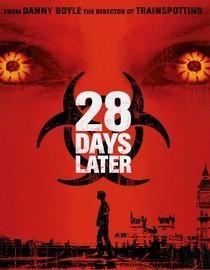
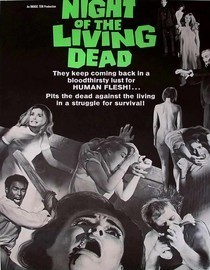
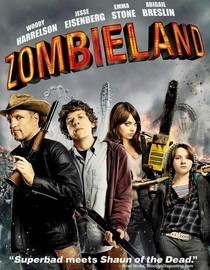

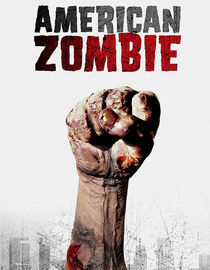


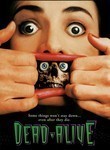
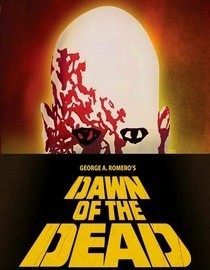

 I don't care what kind of society I'm reading about, that will never be okay with me. I'm sure it's fine for many people, since we seem to live in a time where "young adult" really means "children characters in adult stories." That's simply not how I roll.
I don't care what kind of society I'm reading about, that will never be okay with me. I'm sure it's fine for many people, since we seem to live in a time where "young adult" really means "children characters in adult stories." That's simply not how I roll.
You give me a compass that tells good from bad, and boy I’ll be a soldier of the righteous truth. But them two things are a slippery business, and tellin them apart might as well be a blind man’s guess.This is a short novel that manages to be epic in its themes and scope, all at once horrific, heartbreaking and rife with tragedy. The violence is explicit but even as the blood and stinking offal pour across the page the book’s magnitude and terrible beauty is never in dispute. Alden Bell is writing Southern Gothic set in a landscape where things are not “gross” but rather “grotesque”.

But you gotta look at the world that is and try not to get bogged down by what it ain't.
They don't bother you so much, she says, if you can stay out from between their teeth.
If I ain't evil, then what am I? Cause my hands, see, they ain't seem to got no purpose except when they're bashing in a skull or slittin a throat. That's the whole, all around truth of the matter. Them meatskins, they kill - but they ain't get any satisfaction out of it. Maury, you sure are wanderin a lonely earth - full of breach and befoulment - but the real abomination is sittin right next to you.
There they sit, at a rickety card table attached with brackets to the inside wall of the boxcar so it doesn't spill over with the starts and stops, playing Omaha poker and drinking booze out of tin mugs, or sitting with their legs out the open side of the car, watching the landscape go by and breaking down their guns to clean them, or carving miniature figures out of basswood with pocketknives. There they are, the new knights-errant of this blasted homaloid - lost men who find lost men and carry them to safety by their dusty collars.
They belong, Temple thinks. They have they stink of belonging wherever they go. This world is their world, and they take possession of every yard they cover, and they run the sun to its grave every night.
This girl ain't full service.